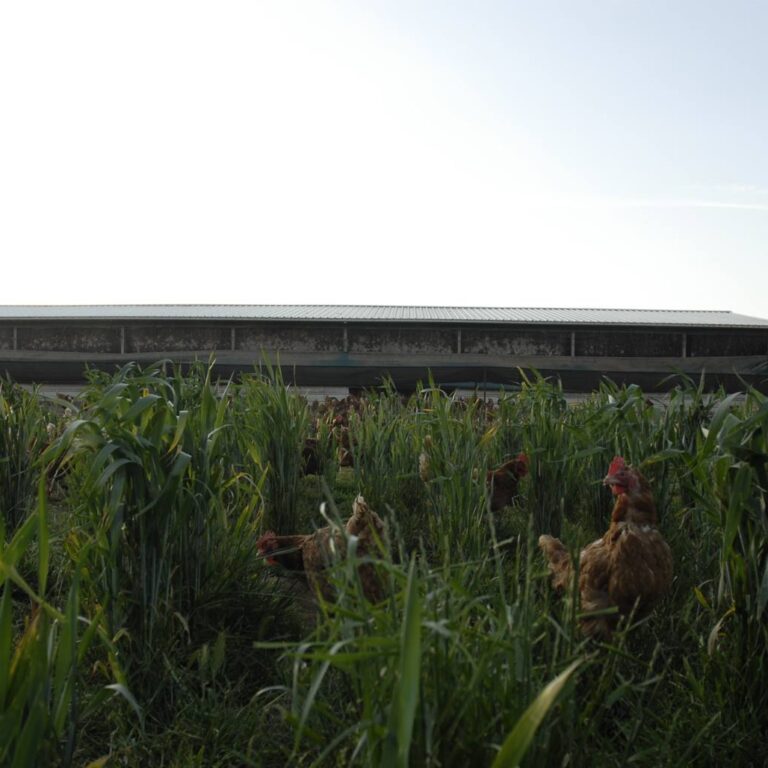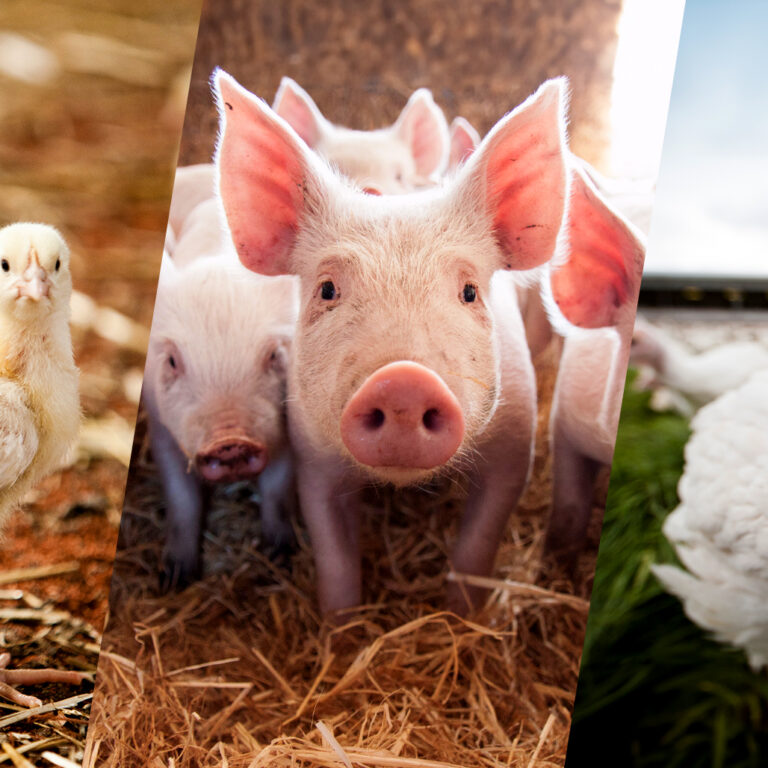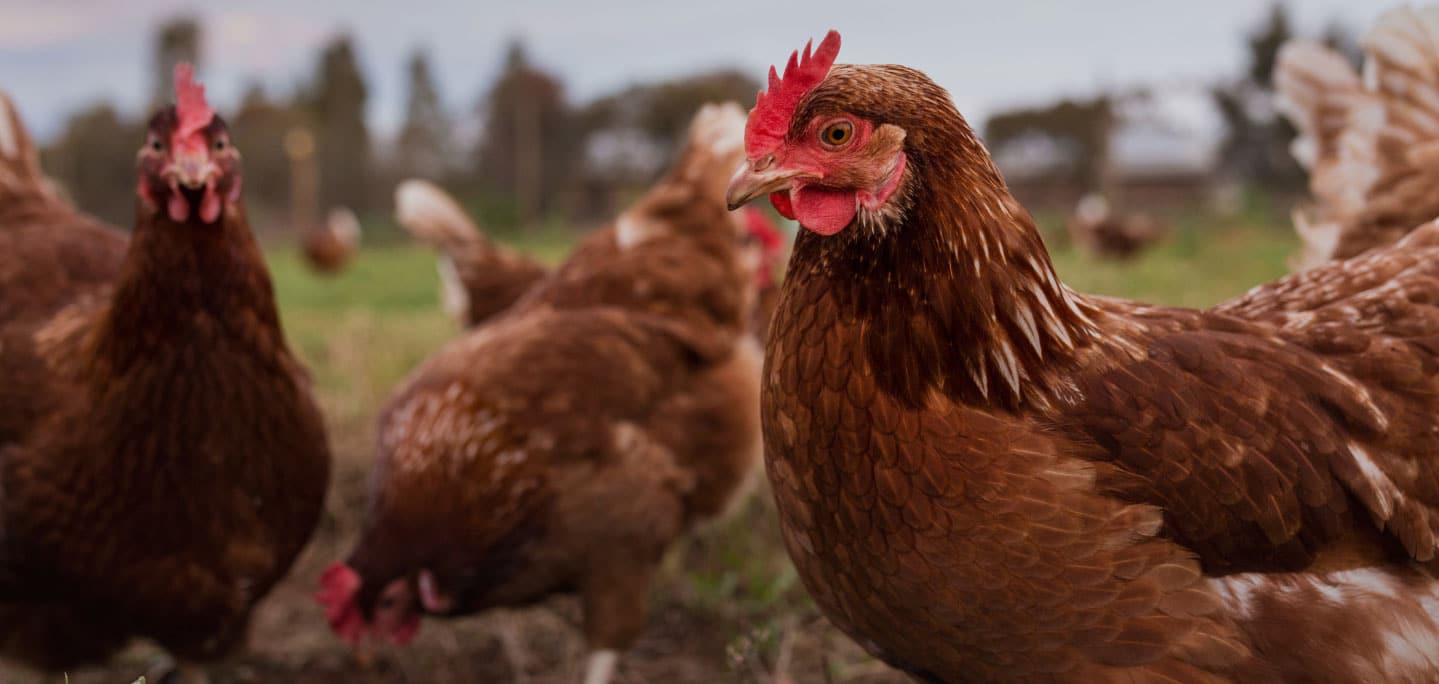Have you stood in the egg aisle at your local supermarket, pondering the labels and wondering which ones would be best for animal welfare? If you’d like your eggs to come from a farm where hens have space to freely move around, can peck, scratch, dust bathe and perch – then there’s one certification that’s a must – RSPCA Approved. And we have some good news for Canberrans and NSW shoppers. Farmer Rod’s Free Range Eggs are RSPCA Approved and have been popping up in more stores near you these past few months. Here’s why Farmer Rod’s eggs are worth tracking down as part of your weekly shop.
Certified by the RSPCA for better animal welfare
Gaining RSPCA Approved certification isn’t easy. The process is rigorous and takes time.
Being RSPCA Approved means animals are raised to the RSPCA’s detailed animal welfare standards with the farm undergoing regular visits by trained RSPCA Assessors to check the standards are being met.
For the Popes – the family behind Farmer Rod’s Free Range Eggs – it took over 12 months, a huge effort and a complete transformation of their farm, to join the Scheme. But it was worth it, and it’s something they are very proud of because it means their farm is independently certified against a detailed set of standards that are backed by animal welfare science.
“We are extremely proud of how the farm looks and operates today,” says Rodney Pope.
“Being RSPCA Approved gives our customers the confidence they are buying free-range eggs with the highest welfare standards certified by one of the most reputable and recognisable organisations in Australia.”
More space for hens
Both inside and outside the barn, RSPCA Approved farms have lower stocking densities than what’s required by law. For egg-laying hens this means more space for birds to flap their wings, run, stretch and socialise. It also means it’s easier for them to move away from and avoid aggressive birds.
On the Farmer Rod’s range there’s a maximum of 1,500 hens per ha. This means more space per bird for scratching and foraging.
In the morning, multiple large doors on the side of the barn open up and the hens wander out as they please to peck, scratch, forage and dust bathe (flicking dust into their feathers to keep them clean and free from bugs). They can do these things all day long, with trees and shrubs offering shade and protection from predators and the weather.
The Popes recently planted 300 bare-rooted Pin Oak trees to encourage the hens to explore further areas of the range while feeling safe. As well as providing additional shade and protection, these trees also mean there are more seeds and bugs around which the hens love!
Quality indoors
At dusk the hens instinctively come back inside the barn and the doors are closed to keep them safe overnight. Even on a free-range farm, the quality of the indoor environment is crucial for better welfare. Inside the barn, Farmer Rod’s hens have water, nutritious food, secluded nests to lay their eggs and perches for roosting (resting and sleeping).
Family owned and operated
For 30 years, Rodney and Jane Pope have been producing free-range eggs. As third generation wool and beef farmers, the Popes diversified into egg farming to help get their young family through a severe drought in the early 1990s.
Now, three decades later, they have 17,000 hens farmed to the RSPCA’s higher welfare standards on their picturesque farm in regional NSW.
Farming for the Popes has always been family orientated with Rodney and Jane’s four children all involved in the business and the farm.
Rodney and Jane’s son Bill remembers helping with the sheep and cattle work, then when the first pullets arrived on farm ready to start laying, he and his siblings pitched in too.
“Collecting eggs on weekends, filling the feed troughs and moving their houses to fresh pasture were routine jobs. On leaving school, we all had a turn at selling our eggs at farmers’ markets in Sydney,” says Bill.
“Last year, after 10 years working in Sydney, I returned to our farm to help out full time and make it my career. I feel privileged to be able to contribute to, continue and improve our family business.”
Where to find Farmer Rod’s eggs
ACT: You can find them at Supabarn in Kingston, Crace, Casey and Wiffens at the Fyshwick Market
NSW: Head to a Harris Farm Market, IGA Dulwich Hill, Mollymook Fresh or to the Carriageworks Market
You might also be interested in NSW’s only free range RSPCA Approved egg farm is a family affair







1 Comments
One response to “4 Good Reasons to Choose Farmer Rod’s Free Range Eggs”
Your voice is authentic and accessible, I appreciate that.